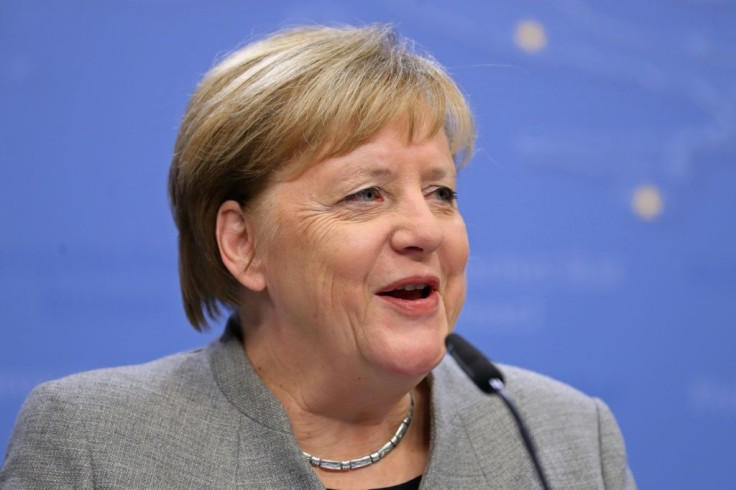Germany Delivered Weakest Economic Expansion In Six Years As Export Growth Slowed

KEY POINTS
- German GDP growth plunged to 0.6% last year from 1.5% in 2018
- Bundesbank forecast 0.6% growth in 2020 as well
- Germany has huge budget surpluses that might be used to stimulate growth
Germany’s economy grew by 0.6% last year, down from the 1.5% growth recorded in 2018. The 2019 figure marked the smallest advance recorded since 2013 when gross domestic product increased by 0.4%.
“The German economy thus has grown for the tenth year in a row. This has been the longest period of growth in united Germany. However, growth lost momentum in 2019,” said Destatis, the country’s federal statistics office on Wednesday. “Growth in 2019 was mainly supported by consumption expenditure. German exports continued to increase on an annual average in 2019, though at a slower pace than in the previous years.”
Destatis also indicated that the service sector performed well but manufacturing fared poorly. Export growth slowed down to 0.9% from 2.1% in 2018 and 4.9% in 2017.
"Growth momentum ebbed significantly" last year, Destatis official Albert Braakmann said.
Germany’s total industrial output, excluding construction, dropped by 3.6% last year.
For example, Germany’s domestic car industry has been burdened by a slowdown in sales as more consumers switch to electric vehicles.
Germany, the biggest economy in the eurozone, barely avoided slipping into recession last year when it posted tepid gross domestic product growth of only 0.2% in the second quarter and 0.1% in the third quarter. Recession is defined by two straight quarters of economic contraction.
“The worst is probably behind us, but the German economy has yet to enter into a clear recovery mode,” said Allianz economist Katharina Utermoehl. “German economic momentum for now has at best stabilized at low levels.”
She added that “demand for German exports should only stage a timid recovery in line with the subdued recovery in global trade. Domestic demand will hence clearly continue to run the show in 2020.”
Last week, Ifo, a Munich-based research group, released a survey suggesting that German industry will cut its output further over the next three months.
“Looking through the monthly volatility there are, therefore, few signs that Germany’s industrial recession is coming to an end,” said Andrew Kenningham at Capital Economics. “We expect industrial output to decline in the first two quarters of this year too.”
Germany’s central bank, the Bundesbank, recently reduced its 2020 gross domestic forecast for Germany by half and now projects an economic expansion of just 0.6%.
The latest data will likely pressure Chancellor Angela Merkel’s coalition government to stimulate growth through higher public spending as the government’s public finances showed another large budget surplus.
Destatis said the total surplus – encompassing local, regional and federal governments -- amounted to about $55.4 billion, or 1.5% of GDP.
But the parties of the coalition government -- Merkel's conservative Christian Democratic Union, or CDU, and the center-left Social Democratic Party, or SPD – cannot agree on how to spend the surplus. SPD wants more investment and higher social spending while CDU favor tax cuts for individuals and businesses.
Carsten Brzeski, an economist with ING in Frankfurt, said he did not think short-term stimulus is necessary. Rather, the surplus should be used to invest in digitization, infrastructure and ecological transformation.
“The new fiscal surplus, combined with changing views in the coalition [government] parties, confirms our view that the German economy could see more fiscal stimulus than most observers expect this year and beyond,” Brzeski wrote.
Other analysts saw signs of an economic decline for Germany.
"The golden decade Germany has seen for growth is gradually coming to an end," said Holger Schmieding of Berenberg bank.
Fritzi Koehler-Geib, chief economist at KfW public investment bank, noted that "the difficult foreign trade environment meant permanent stress for German industry.”
But she added that with unemployment low and service industries relatively strong, "solid domestic demand alone saved the economy from recession last year.”
© Copyright IBTimes 2025. All rights reserved.





















